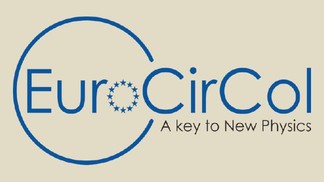Jun 5 2015
The EuroCirCol project, which will take Europe’s particle physics research to the next level, has been launched. EPFL is one of the main partners, with significant research contributions.

The European Circular Energy-Frontier Collider (EuroCirCol) project was formally launched on June 1st, 2015. Coordinated by CERN, EuroCirCol is a conceptual design study for the research infrastructure of future high-energy particle physics. After scoring a perfect 15/15 (the highest of all submitted proposals) with the Horizon 2020 Research and Innovation Framework Programme, it will receive €3M funding from the European Union. EuroCirCol will run for 4 years, bringing together an international consortium of 16 partner universities and research centers, including EPFL.
The objective of EuroCirCol is “to develop the conceptual design of a future energy frontier hadron collider infrastructure as an international, collaborative effort under European leadership.” Whereas the Large Hadron Collider will run at 13 TeV after its current upgrades, EuroCirCol aims at a circular hadron collider based on an energy-frontier 100 TeV.
To perform at this level, EurocirCol includes designs for accelerator magnets that achieve high-quality fields up to 16 T, as well as a cryogenic beam vacuum system to cope with unprecedented synchrotron light power. But while aiming to operate an accelerator of this scale within a realistic timeframe, EuroCirCol also aims to implement advanced energy efficiency, reliability, and cost effectiveness.
EPFL is heavily involved in EuroCirCol through Professor Leonid Rivkin’s Laboratory for Particle Accelerator Physics (LPAP). LPAP is currently participating in both the research carried out at the LHC and its future upgrades. In addition, LPAP has also been involved in the global Future Circular Collider (FCC) study, which has birthed the idea of EuroCirCol.
“EPFL researchers have been studying the effects of beam collisions and how they limit the integrated luminosity delivered to the experiments,” says Leonid Rivkin. “With simulations and experiments on the current LHC, we study how to optimize its future high-luminosity upgrade, which should deliver 100 times more data than has been collected up to now.”
EuroCirCol is part of the global Future Circular Collider (FCC) study, federating resources worldwide to assess the merits of different future accelerator scenarios. FCC forms the core of a globally coordinated strategy of converging activities in a very important research area, involving participants from the European Research Area and beyond.